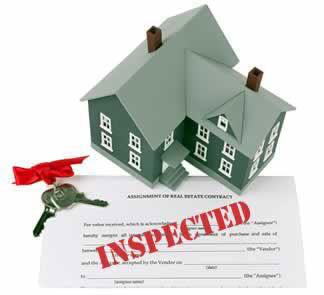
So your tenant has just moved out and wants to get their security deposit back. Well just before you do this there are a number of steps to follow to insure everything is in order and the tenant gets the correct amount due.
Inspect the property. This is best done once the tenant has moved out and preferably in your own time rather than the tenant walking around the property with you. You may have built a relationship up with the tenant and having them follow you around whilst looking through the property can be difficult to give a thorough inspection. A couple of pointers here is to check everything for anything above normal wear and tear. Move the furniture about slightly and make sure nothing is wrong with the flooring i.e iron burn mark on carpet caused by a tenant ironing clothes on the floor. Check on both sides of a sofas removable cushion, a common area for liquid stains. Check behind any pictures or posters that were not there before , these can be typically placed to hide any holes or major scuffs on walls.
You might get benefit from reading a previous blog on Wear and tear in a rental property
Inventory. Make sure to go through the inventory, it may appear to have everything in place but its always best to check. If you have no inventory done on this letting make sure to have one on the next letting. (Check out our previous blog on inventory)
Utility readings and accounts being closed. So the tenant has been kind enough to close and forward their account to their new property, excellent but make sure the correct readings were given. Just because a closing bill has been produced it doesn’t mean the readings were accurate; open your meter and double check. A couple of hundred units below the correct readings and this could cost you around €50. Call the utility company and double check.
How to read your electric bill
Waste collection. Similar to that of the utilities some waste collection companies invoice in arrears and they won’t forward the bill on with the previous tenant. They want full payment or no collection of your waste next time around. Waste collection blog
Rental payments up to date. Cross check all your payments received and insure that they tally with all that is due. Sometimes it can be easy to assume that because the tenant paid in full every month when you checked that he continues to do it when you don’t. Rent payment blog
Returning the deposit should be done as promptly as possible for your tenants and the PRTB states it should be done in a speedy fashion. The time limit without a dispute is 2 weeks but this should be ideally done within 48 hours of a tenant leaving the property. This should give you more than enough time to go through everything and more than likely in today’s climate your tenant will be deepening on it.
Whilst some of the above may seem excessive to some it all comes from experience as a property manager and all of the above areas of caution have come up many times.
As always please feel free to comment, share, tweet or follow us
Thanks for reading!!
by Andreas Riha
